This story was originally published in April of 2018.
Mark and Katherine Bellissimo serve as managing partners for many of the world’s largest and most prominent equestrian venues located in North America. Their current properties include the Colorado Horse Park in Parker, Colorado; International Polo Club and Palm Beach International Equestrian Center in Wellington, Florida; and Tryon International Equestrian Center at Tryon Resort in Mill Spring, North Carolina. Their company, International Equestrian Group, also operates and manages the Rolex Central Park Horse Show in New York City.
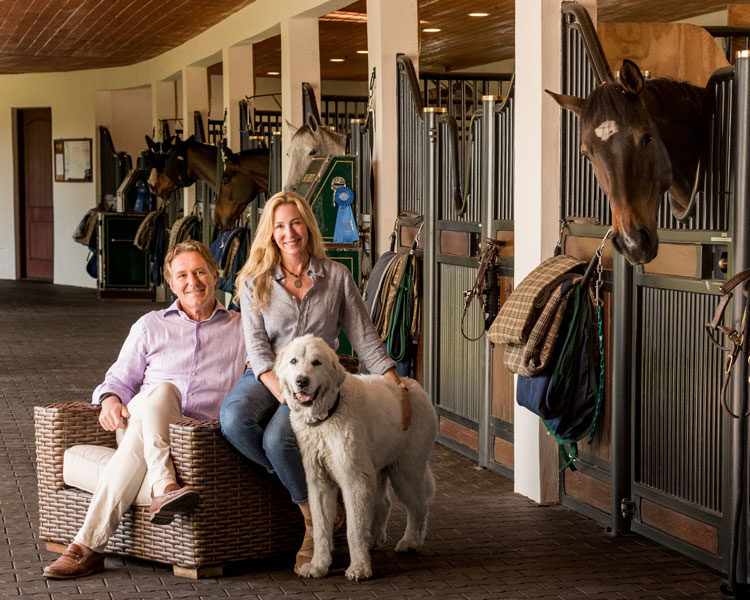
When you bought the Winter Equestrian Festival (WEF) in Wellington, did you have any idea what it was going to turn into?
I didn’t, but I will say this. As a pony father, I observed the passion my children and my wife had for horse sports. You can tell when they’ve been on a horse. It’s very amazing to see the impact that horses have on humans. So, I knew there was a great opportunity. I believed that if you created a product that was much more respectful to the exhibitors and competitors in terms of quality of the experience, quality of footing, quality of prize money—that the sport could grow. I felt confident that we could repackage it to a point where it could be much more interesting to a mainstream audience. The former owners charged money, from my understanding, as a way to keep people out.
I think that Wellington was a private club for the privileged few. Our fundamental goal from the start was to really try to highlight the passion that people have for horses. You don’t have to be an Olympic rider. The connection point is so very powerful and very strong. For example, each year 8 million people will snow ski, 23 million people will pick up a tennis racket, 25 million people will pick up a golf club, but the largest number, 27 million people, will ride a horse. People don’t understand that. That’s a very important element of our success. But from a sport perspective, it’s hard to get an audience. When you look at our events, we’ll have anywhere from 6,000 to 8,000 people at them. Most other equestrian events don’t, so if you go to an event, the organizer has no incentive to increase the spectator base or the sponsor base.
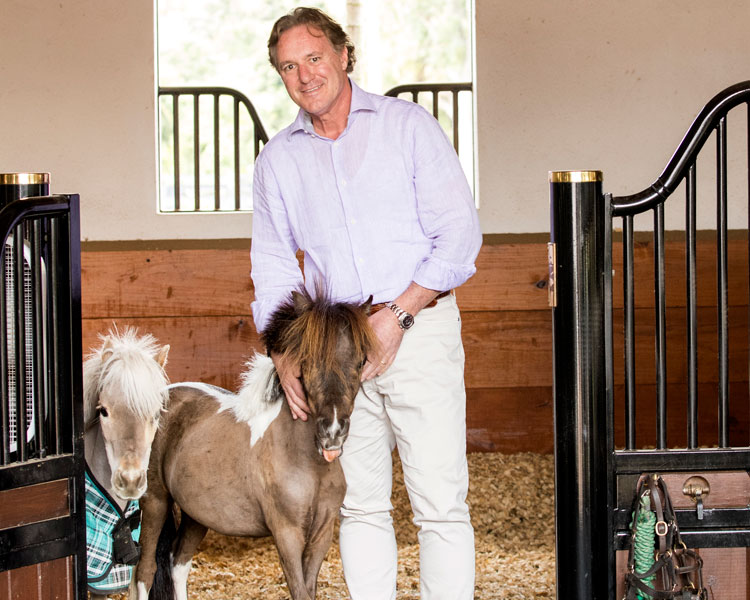
We’ve opened it up to a much broader audience. Part of the reason for the carousel that sits in the front of the stadium was a statement to say, “As long as we own it the admission will be free, and the carousel will be free.” Anyone who wants to experience equestrian sport, whether it’s riding on a carousel or observing an Olympic rider, is welcome here. I think that has changed a lot of the dynamics within the community in the acceptance of the sport as something that’s very inclusive, versus very exclusive.
What happens when you open it up to this broader audience? Does the sport lose its mystique?
There was a group of people—they’re a much smaller minority now than they were—that felt my approach was disruptive to the status quo and tradition. The reality is that equestrian sports is a challenge right now. It hasn’t grown in 10 years, and in some areas, it’s in decline. My fundamental view is that you can change that trajectory, but you have to be innovative, and you have to start thinking about how this industry should evolve. Unfortunately, I think there’s much more effort and energy put into preserving the status quo. There’s nothing that has killed more companies or industries or organizations than preserving the status quo, because it really comes down to evolution versus revolution. I think there’s been an evolution that has taken the sport in a different direction. I think there needs to be some new energy that allows it to be much more accessible to a mainstream audience. If it’s not accessible to a mainstream audience, it will always be a fringe sport. Sports like golf and tennis made their transitions in the ‘70s, ‘80s, and ‘90s from country-club sports that were rarely seen by the public.
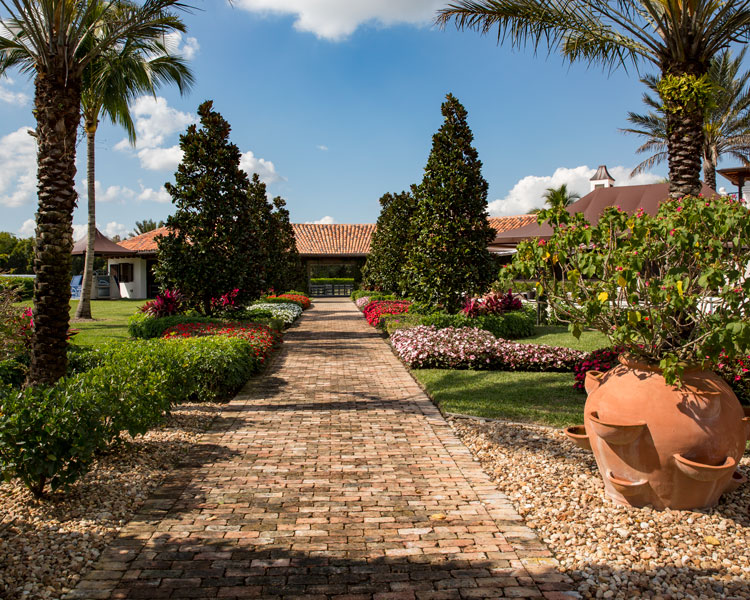
Are you going to follow the same philosophy in Tryon?
Tryon will be built from the start to be more of a Disney-like experience. At Disney, if you want to stay at the luxury Grand Floridian and you want to spend a lot of money per night, you can do that. If you want to stay in a cabin, or a more moderately priced hotel, you can do that, too. So, our whole goal there is to try to introduce equestrian sports to an even broader audience.
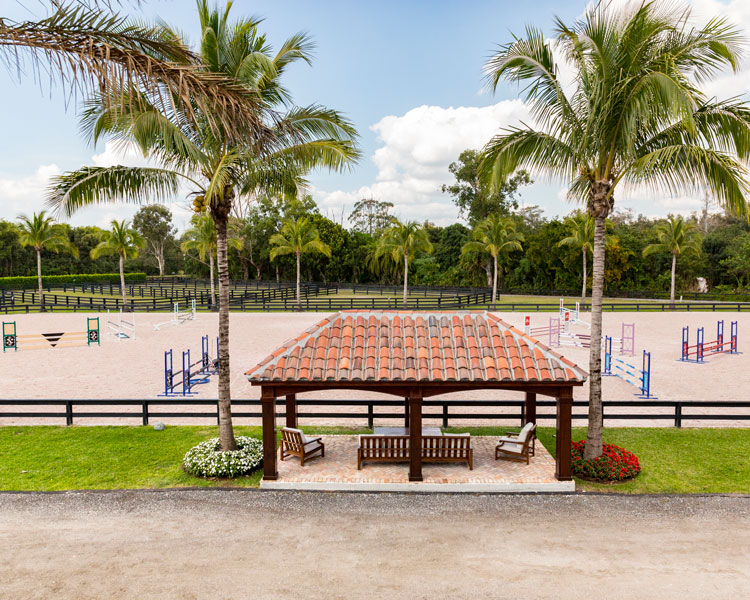 How is Tryon taking to the changes and the development?
How is Tryon taking to the changes and the development?
We have the largest support in Polk County. We have over 500 employees. Everyone has been absolutely spectacular. I think in general that has probably been one of the most rewarding experiences. The textile industry had decimated that whole area, and it had some of the toughest unemployment within the state. We came in there and have really changed people’s thinking on the county’s trajectory. People are much more hopeful than they were, because they were in a place where nothing was happening, and it was just in decline. Kids were moving out and families were struggling. Now, we’ve had a very significant impact, and very, very quickly. We spent $150 million in 16 months. That has employed thousands of people. It’s all privately funded. It’s a group of families that we are working with who really believe in and love equestrian sport and also have become very engaged at transforming a community around equestrian sport. We’ll be introducing a lot of people to the sport.
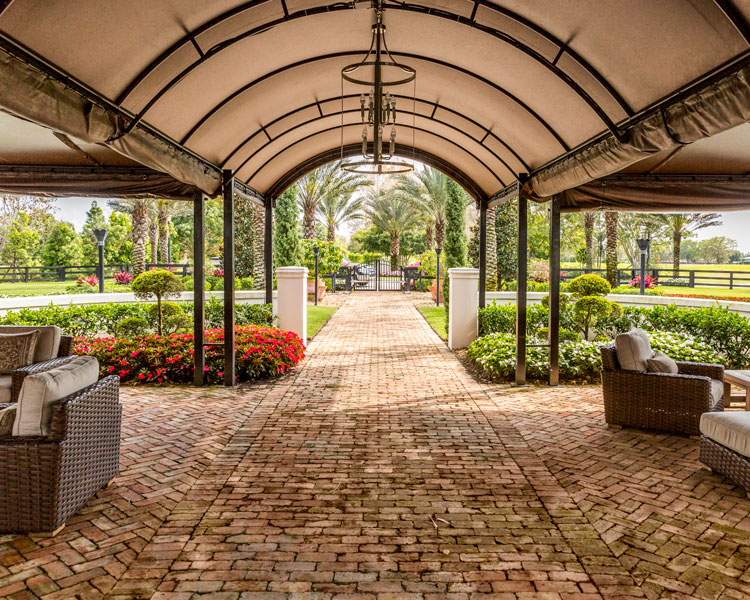 And the climate here in Wellington?
And the climate here in Wellington?
Wellington needs to evolve in terms of its thinking about things. Now, with the recent local elections, there was a big changeover from the former council. I think that people spoke up.
The reality is that most communities in America need jobs. Unfortunately, there’s a small group of people who believe that preserving the status quo is more important than building an industry first and foremost for this community.
People personalized it to me as, “He’s a developer.” In reality, I’m not a developer. That’s not my background. My background is fundamentally centered around business turnarounds. I’ve worked in areas from health care to manufacturing. I’ve worked in software technology. I’ve worked in the airline industry. This venue was a struggling business. WEF was very small compared to what it is now. It was losing a ton of money every year, and we turned it around. Our economic impact to Palm Beach County is over $200 million a year now. We generated 150,000 hotel room nights.
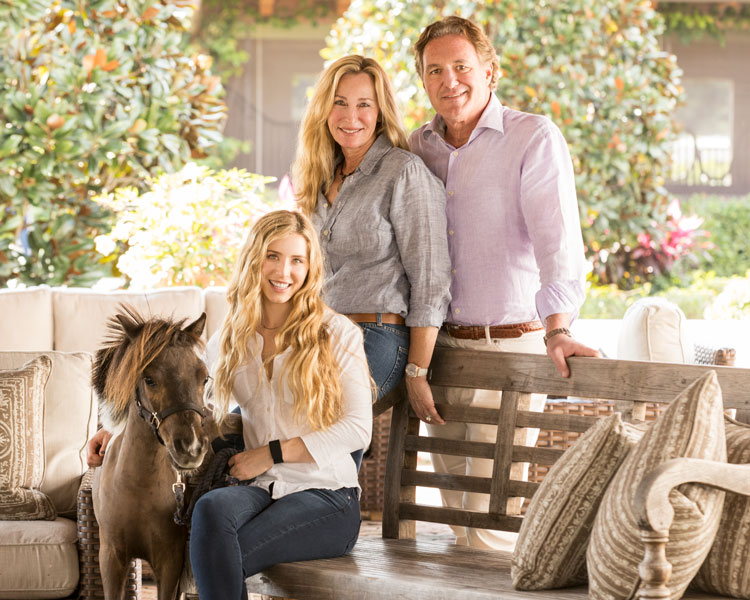
And there is basically only the Hampton Inn in Wellington?
Only 8,000 in Wellington for the Hampton Inn, and, by the way, it’s the most expensive Hampton Inn in the United States. You don’t understand the impact of that. Right now, it’s very hard to stay in Wellington. Renters are requiring four-month stays. That’s a structural problem that has a long-term impact. I’m making movements towards changing that and hopefully being successful.
How will your new eventing and gladiator polo be part of WEF?
Those events have brought new owners and are bringing new energy into the sport. I think eventing is an important part of our philosophy. Polo, eventing, jumping, dressage, and I’ve been trying to do two steeplechases. Our business is around promoting the equestrian lifestyle. I think that’s what a lot of people missed. It’s not about a show-jumping competition, it’s not about dressage, it’s not about polo. It’s about how you build an environment that is respectful to the connection between horses and humans from a lifestyle perspective.
Are the sponsors of gladiator polo different?
They’re all over the place. Bank of America, U.S. Trust, Merrill Lynch, we’ve got four beer companies, we’ve got spirits companies. We’ve got some equestrian companies that sponsor at WEF, some go to polo, some to dressage. Some are just in the community. The model is different. This will be a transition point for the industry. In lieu of going out and trying to get massive sponsorships, we put these jerseys on them with logos of all the sponsors. So it’s much more of a NASCAR model, and we are able to get a tremendous amount of revenue. It’s unprecedented in total. We are creating a professional league in polo.
Lastly about this farm. How did it get its name?
Far Niente is Italian for “without a care.” It’s also a wine. We had a summer home in New Hampshire near Lake Winnipesaukee that was sort of our special place. We were drinking the wine one time and just said, “What a great name for a wine! What a great name for a farm!” So, our farm up north is Far Niente, and so is our farm here, and in South Carolina too.
